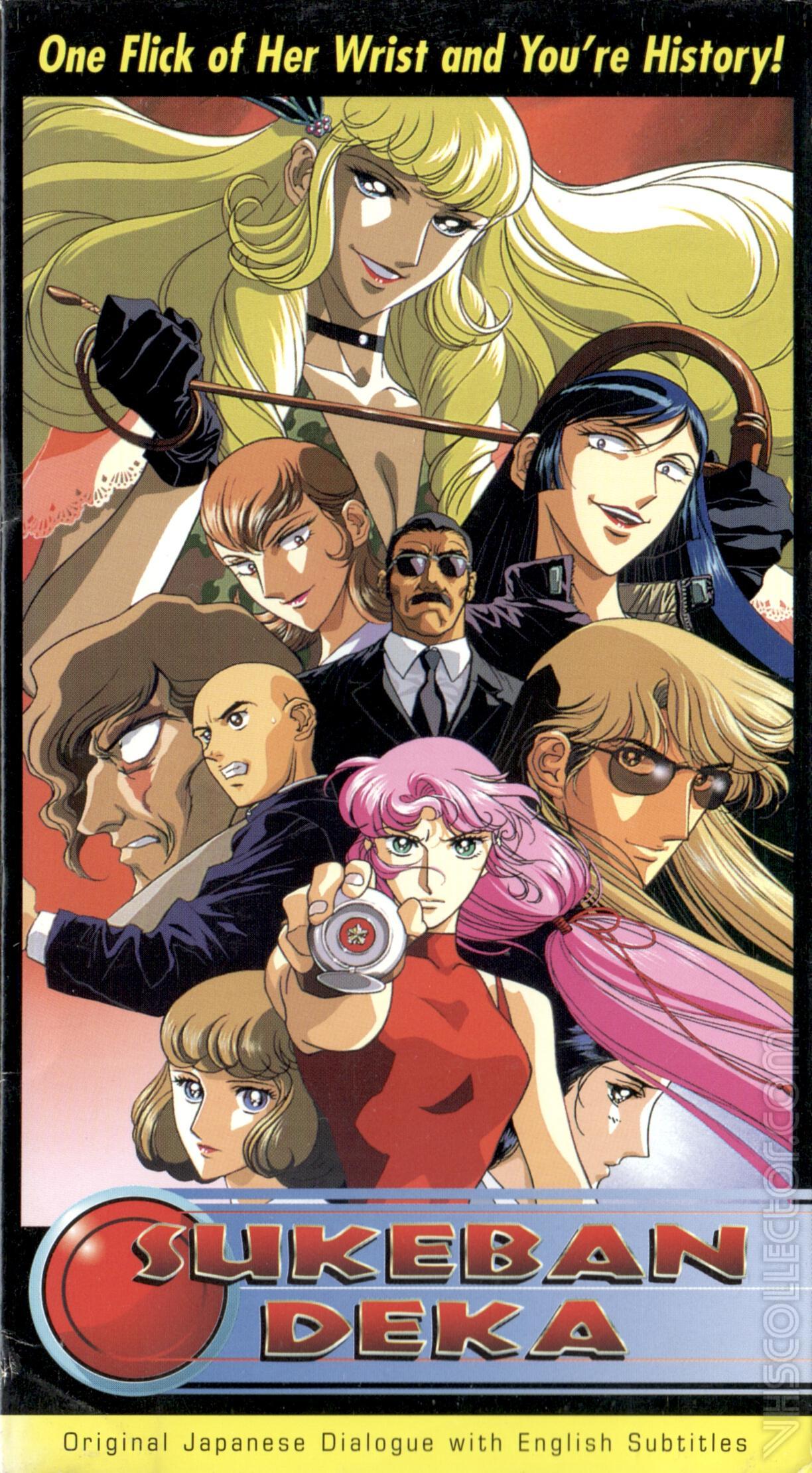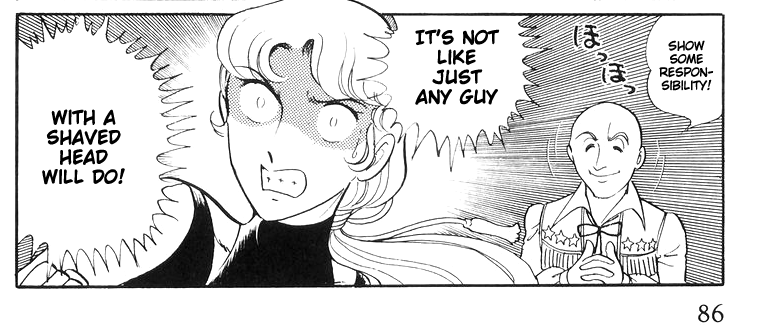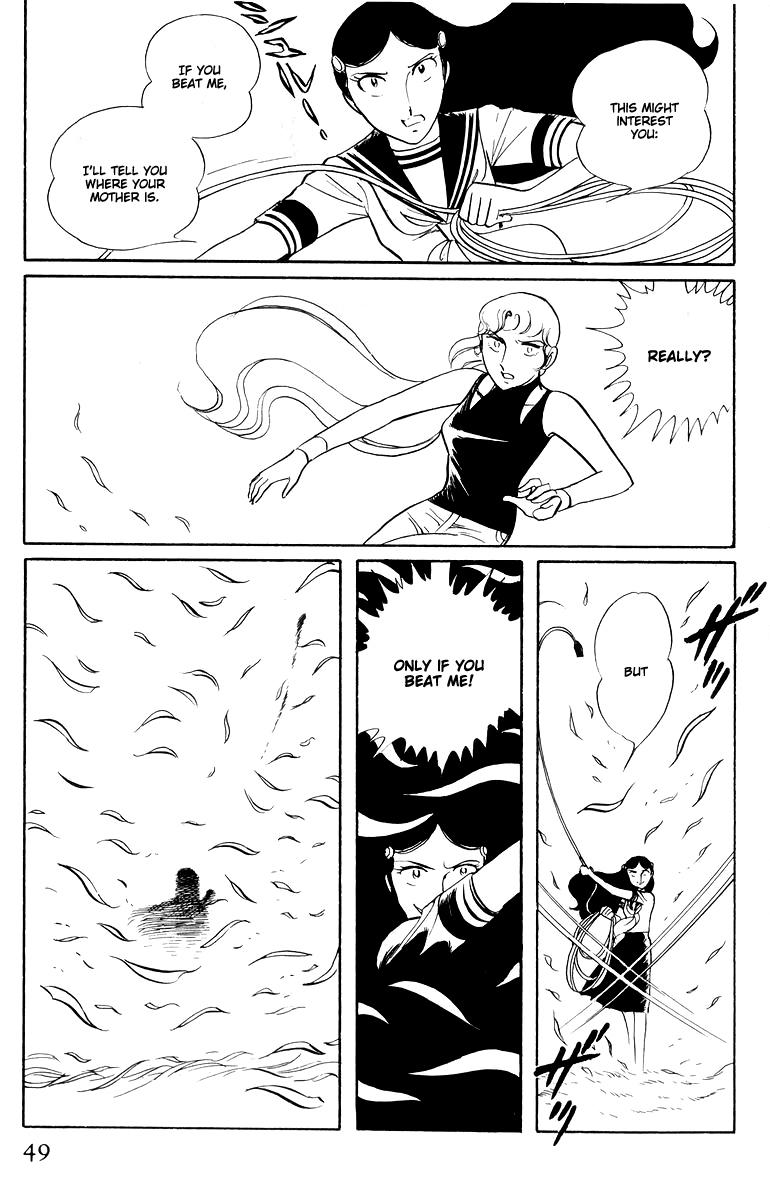Sukeban Deka (Guest Article By H.Morrison)
6/14/2025
We've got a new guest article from H. Morrison, who you may know from her YouTube channel and general love of Devilman. She also recently was part of the "There's A Devilman In Your Cereal!" panel at ACEN 2025! Now she has come aboard the site to talk to you about Sukeban Deka! The floor is yours, madam!

In the height of me revisiting some old shoujo I had read/watched in middle school, I had actually come across a new one that I hadn't ever touched or heard of before. To my surprise, I found out that this was actually a highly influential manga on one of my all-time favorite anime, Revolutionary Girl Utena. And in typical fashion, the only way the west saw it was from a dubbed OVA from the 90s.
That being Shinji Wada's Sukeban Deka - directly translated as Girl Delinquent Detective. (That doesn't have as nice of a ring to it.)
Sukeban Deka stands out as a 1970s manga since, by that time, most shoujo manga was starting to be written by women. Prior, in the 1950s and 60s, the shoujo manga market was dominated by men with its targeted demographic being little girls.
Until the Year 24 women.
This group of women mangaka - all born in the 24th year of the Showa era1 - were reshaping the entire genre, by introducing darker elements such as discussing politics and even getting into discussing gender roles. This name was given to them by journalists and scholars who believed that their influence created the golden age of shoujo manga.
Year 24 is particularly known for the creation of BL - leading with Heart of Thomas by Moto Haigo and the more explicit Kaze to Ki no Uta by Keiko Takemiya. (If you consider the on-page kissing and sex to be more BL.) And of course, Roses of Versailles by Riyoko Ikeda, which itself would influence the yuri genre.
Fundamentally, as the shoujo genre was changing its shape, Shinji Wada was effectively utilizing tropes the Year 24 women introduced, such as bringing up talks of child abuse, classism, and even surprisingly subtle talks about comphet. There are a lot of ongoing jokes about men hitting on the protagonist of Sukeban Deka and there's even one arc where she kisses another girl - more on that later.
Sukeban Deka managed to be a well-written 70s shoujo by a man. And it wasn't like it never sold well or anything - in fact Sukeban Deka remains on the list of best-selling manga of all time, sitting in at roughly 20 million copies. It's influenced not only Revolutionary Girl Utena, but things like Kill La Kill and even the 90s Cutie Honey OVA series references the beloved protagonist, Saki Asamiya.

It's that popular! Yet it's so obscure in the West as a series that even its two more recent manga revivals haven't gotten a localization either. I'd hope that someday we'd be able to see it localized in the West outside of an OVA series you can't obtain legally or by watching the subs of the “Yo-Yo Girl Cop” from 2006. (Of which I have admittedly not yet watched.)
What makes Sukeban Deka so compelling anyways?
It focuses on our heroine, Saki Asamiya, who is currently in juvie for… currently unknown reasons. But she has a feared reputation as a sukeban and has made countless enemies on her own. Other story elements would imply that Saki is intentionally staying here for some reason… despite her intelligence letting her escape with ease.
Saki is then offered to be released if she agrees to become an undercover sukeban detective - whoa title drop! - and investigate the various ongoings in schools that the police cannot infiltrate. Initially Saki declines until it's revealed she'll be given access to her incarcerated mother, who is set to be executed soon.
Tempted with the promise of reuniting with her mother, Saki plans her escape and accepts the job. Saki is given a special yo-yo that contains her police badge, as Saki is well known for utilizing a yo-yo as her main weapon. Shinji Wada mentioned at one point that he would often go outside and test all of Saki's yo-yo tricks to see if they were feasible.

She's tasked with taking on all sorts of cases - the most famous one being a group of wealthy sisters wreaking havoc upon Saki's school. The eldest sister gets away and swears revenge on Saki and her friends and family, leading to the conclusion of part one. And spoiler warning, Wada intended for the story of Sukeban Deka to end in 1978 with Saki's death to ensure he would actually finish the story.
Wada's later works wouldn't achieve the same popularity as Sukeban Deka so he would later come back in 1979 and start part two - which is still in the process of being fully scanlated. From what I've read thus far, it's certainly not up to par with the preceding part, but it carries the same sort of themes and likability that helped propel its popularity.
Throughout the story it touches upon themes of poverty in the 1970s and what drove a lot of girls into becoming sukebans. In fact, many of the cases Saki takes on have a lot of underlying themes of classism in them.
Sukeban Deka's famous arc, from its first three volumes that later receive an OVA adaptation, focuses on spoiled wealthy girls and their entitlements, including stealing artwork from one of their classmates in poverty.
The final arc in part one discusses how Saki's younger sister was placed in a more wealthy home and was given access to better things over Saki. As if Saki was forced into this role of a delinquent to protect her little sister. SPOILER WARNING: is all for naught as her sister dies towards the end.
Saki's own mother prefers her little sister over Saki. And one of Saki's motivations in the story is trying to get her mother's approval - despite the narrative hinting at the fact that Saki's mother is clearly abusive. After all, as we learn later down the line, Saki's mother got sent to prison for killing her husband in front of Saki.
And with how Saki is often treated within the narrative as being disposable and so sacrificial, it makes you so upset over her backstory. It gives you all the more reason to cheer her on, despite her delinquency tendencies.
Especially in the story arc that had influence on Revolutionary Girl Utena. This one involves Saki attempting to prove the innocence of her middle school best friend, Kyoko, in a murder case. Kyoko is stuck in an unfortunate situation at a boarding school that results in Kyoko taking out petty revenge on her classmates… that she keeps denying she's doing.
Saki's feelings cause her to get caught up in the drama of it all, trying to prove Kyoko's innocence as a criminal and deciding not to approach her as a friend.
Saki realizes this too late and must confront the fact that Kyoko was the murderer after all. In Kyoko's dying moments, she kisses Saki and refers to her as a prince.. Saki laments these things and wonders what could have been.
It's almost like Utena is a response to this story, what would have happened if Saki had achieved her own goals. What if Saki saved her in time?
Sukeban Deka, to me, is unique in that it provides the sort of entertainment that I genuinely loved to see in more girl-focused works for middle schoolers. I read it after having graduated college, but it is nonetheless something I would have enjoyed reading as a middle schooler. It's entertaining and nice to see a girl-led manga that features the typical “girl kick butt and I'm feminist” type of character written by men… but she carries a lot of depth. It manages to focus on complex female characters and their relationships and it showcases how much the Year 24 mangaka shaped the genre.
Sukeban Deka managed to propel the idea of an action manga marketed to girls… and girls loved it! Saki is such a realistic character - dealing with schoolwork, a job and general life of being a teenager - makes her all the more compelling. It's probably why the popularization of the yo-yo weapon is still around to this day.
I would argue that Sukeban Deka is his magnum opus. I would love for it to one day be officially localized and there's hope! After all, the past few years we've seen highly influential 70s manga such as Devilman, Cutie Honey, Captain Harlock and even more recently Ashita no Joe getting official localizations. Maybe Sukeban Deka is next.
Saki's influence on manga and anime deserves to be more well known, and I hope I've convinced you to try it out.
- H. M.
[1] That would be 1949 for the western calendar.